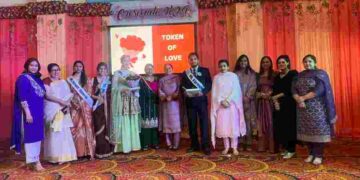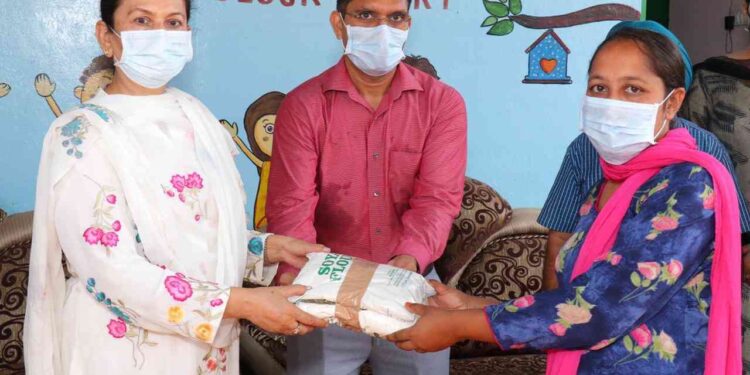• 8,08,01 children and 2,40,093 pregnant and nursing mothers are being provided with new dietary recipes to end Anaemia
Chandigarh, July 21:
Punjab Social Security, Women and Child Development Minister Mrs Aruna Chaudhary today informed that coming heavily on anaemia, the department has so far sensitized approximately 2.6 lakh women and 20,000 adolescent girls of the state since the inception of the ‘Anaemia Mukt Punjab’ campaign besides continuously providing nutritious food to more than three lakh children and pregnant & nursing women.
In a press communiqué issued here, Mrs Chaudhary said that the state government has launched the ‘Anaemia Mukt Punjab’ campaign on July 7 and since then the Department of Social Security, Women and Child Development, through its Anganwari Workers and helpers, conducting awareness activities in Anganwari Centres and villages by strictly complying to the COVID appropriate behaviour protocols.
Mrs Chaudhary said that Anaemia is one of the issues of public health concern. Numerous initiatives have been planned to address this challenge in the state. A community-based event with a focus on Anaemia is organised every Wednesday. Apart from this, social media platforms are being used to create awareness about Anaemia.
The Minister said that new dietary recipes were also introduced last month under the Supplementary Nutritional Program (SNP) which includes moong daal, Besan, soya flour and soya nuggets and this nutritious diet is prepared by Markfed. She said that the department is providing a nutritious diet under the Supplementary Nutritional Program (SNP) to 8,08,01 children (0-6 year) and 2,40,093 pregnant and nursing mothers through Aanganwari Centers so that the nutritional value of their food could be further raised.
Mrs Chaudhary specifically informed that going a leap ahead, the department has decided to launch an intensive campaign against Anaemia and devised a strategy to check the behavioural changing tendency at the grass-root level and it would emphasize on causes, symptoms, importance of dietary diversity, and use of iron-rich food and supplements like iron-folic acid (IFA).








